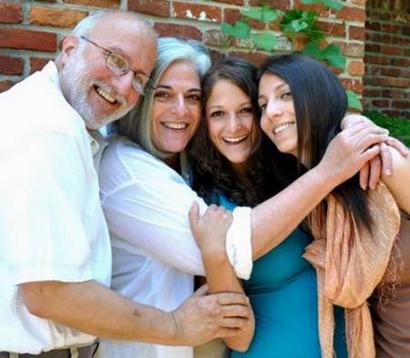On December 3, 2009, American citizen and contractor for the United States Agency for International Development Alan Gross of Maryland was arrested as he attempted to exit the airport in Havana. He had just finished delivering Internet equipment to isolated Jewish communities in eastern Cuba.
In March of 2011, Gross was found guilty by a Cuban court on the ludicrous charge of “acts against the independence or territorial integrity” of Cuba and sentenced to 15 years in prison. Gross was and is no spy or agent of subversion. The purpose of the cruelly punitive sentence was to send a clear message from the Castro regime to those who dream of genuine freedom on the island.
 The message could be stated as: Dare not hope for change! Our regime remains all-powerful. You have no rights or influence and must never question the authority, power, and privileges of the regime. We shall punish—when we wish—those we decide have crossed our invisible threshold of tolerance.
The message could be stated as: Dare not hope for change! Our regime remains all-powerful. You have no rights or influence and must never question the authority, power, and privileges of the regime. We shall punish—when we wish—those we decide have crossed our invisible threshold of tolerance.
There are several lessons to be learned in the ongoing Cuban travesty of justice. Here are four.
1. Gross’s actions in Cuba were consistent with international norms, therefore hardly a crime. One need only look at the Universal Declaration of Human Rights, which clearly states in Article 19: “Everyone has the right to freedom of opinion and expression; this right includes freedom to hold opinions without interference and to seek, receive and impart information and ideas through any media and regardless of frontiers” (emphasis added). Article IV of the American Declaration of Rights and Duties of Man, adopted in 1948 and adhered to by Cuba, states: “Every person has the right to freedom of investigation, of opinion, and of the expression and dissemination of ideas, by any medium whatsoever” (emphasis added).
2. Despite cosmetic economic changes, Cuba’s political system remains non-democratic and totalitarian at its core. After more than 50 years, the Cuban regime still believes the words of the Castro brothers are infallible; the Cuban Communist Party is primary; and the state has a right to exert monolithic control over the lives and activities of all Cubans. This power resides in an unlimited capacity to criminalize what free societies take for granted: access to information, debate, and unrehearsed expressions of individual citizens.
3. Cuba shares a living kinship with other modern tyrannies that range from China and Iran to North Korea and Syria. While the tactics of repression in Cuba may change, the end—preserving absolute power—does not. Meanwhile, much of the evil that occurs in Cuba is ignored by the media and the world.
4. Three years of Obama Administration efforts to improve relations with Cuba with silence and concessions in the hope of opening doors to political dialogue, pluralism, and a real democracy have regrettably come to naught.
Americans are rightly outraged by Gross’s continued imprisonment. Bipartisan support for demanding his release is strong and continues to grow.
Observed Senator Benjamin Cardin (D–MD), “For nearly two years, the Cuban government has held Alan Gross under horrible terms and conditions, violating his human rights and twisting the rule of law to suit their own needs. Mr. Gross should be immediately and unconditionally released so he can return home.”
Congressman Chris van Hollen (D–MD) has also said: “We have no recourse but to ratchet up the pressure. The question for the Cuban government is whether they want improved relations with the United States. So long as Alan Gross remains imprisoned there, that door is closed.”
Now more than ever is the time to keep the powerful light of opinion focused on the injustice of the Gross case and the countless other acts of repression committed by the Castro regime.
